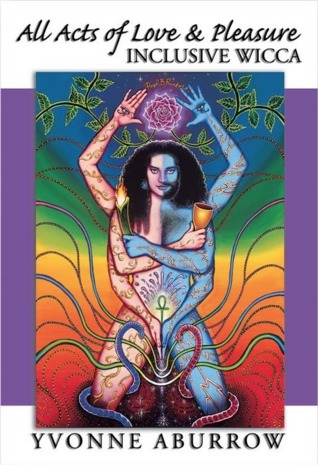I finally got around to doing an analysis of the survey on inclusive Wicca that I ran over Yuletide.
You can download the results and commentary from my academia.edu page, or from Google Drive.
The most interesting set of responses were those on same-sex initiation. 49.4% agreed or strongly agreed that it is a valid Wiccan practice, and 17.3% were not sure, with 33.3% disagreeing or strongly disagreeing. For this set of responses, I did a breakdown by country and tradition (see page 6 of the full document).
34 respondents who said they were from the USA disagreed that same-sex initiation was a valid Wiccan practice. However, a majority of the rest of the world (Canada, Australia, and mainland Europe) and the UK agrees that same-sex initiation is a valid Wiccan practice.
Breaking the responses down by tradition was also interesting. Gardnerian respondents were fairly evenly divided, with 46 agreeing that same-sex initiation is a valid practice, 42 disagreeing, 24 not sure, and 3 not stated (the response was left blank). Twenty-nine of the Gardnerians who disagreed were from the USA. Nine of the Gardnerians who agreed with SSI were from the USA. So, in these survey results, it appears that most of the opposition to same sex initiation is coming from the USA.
Another very controversial area was around mental health and Wicca. Most people felt that it depended on the type of mental health issue as to whether Wicca was a good fit for people. Clearly, more research is needed in this area, as it is hard to draw a definite conclusion from this result, given the huge variety of mental health issues, and varying degrees of knowledge of them, and varying views about magical practices and their compatibility with mental health. My personal view is that it should be up to the person with the mental health issue to determine whether they can cope with a Wiccan circle on any given day.
It was also really interesting that a majority of respondents identified as polytheist. I didn’t specify what I meant by polytheism beyond “many gods”, but still, a very high proportion of respondents (48.5%) said they are polytheist. The next biggest group was the pantheists, with 33.7%. There were more agnostics, Neo-Platonists, “other”, and henotheists than there were duotheists, unless you categorise the henotheists and people who ticked “all the gods are one God and all the goddesses are one Goddess” as duotheists, in which case this group would be 36.2% of the total. It should also be noted that people were allowed to tick more than one box for this question.
If you enjoyed this post, you might like my books.



Fascinating survey, thanks for sharing the results.
LikeLike